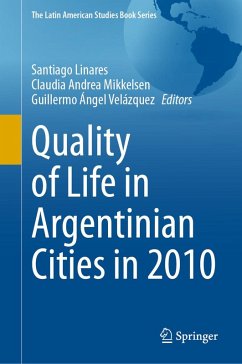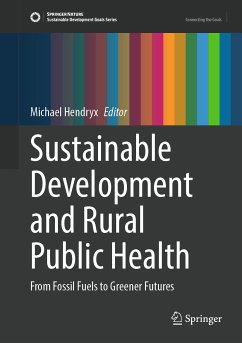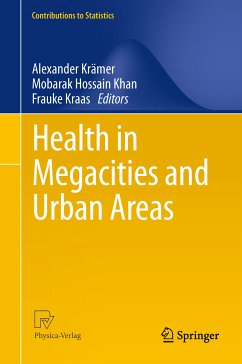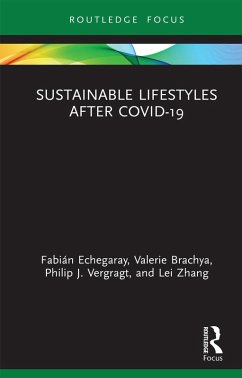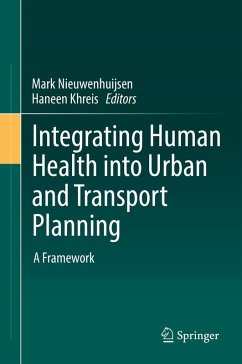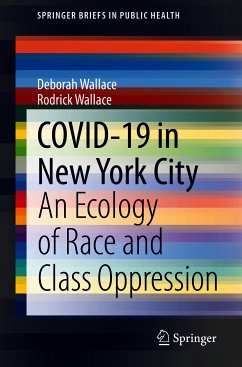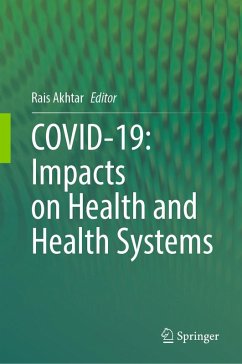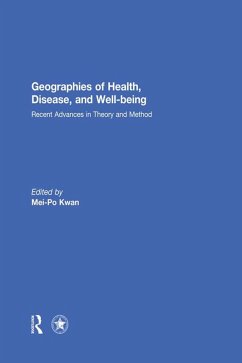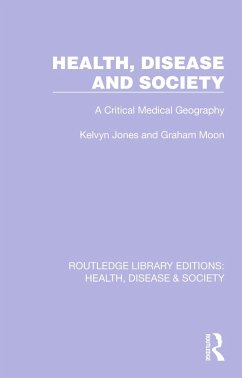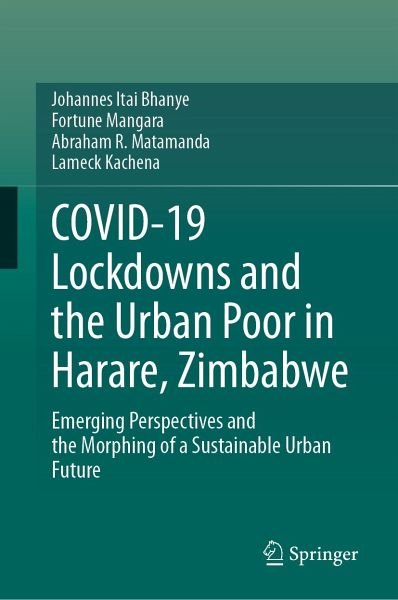
COVID-19 Lockdowns and the Urban Poor in Harare, Zimbabwe (eBook, PDF)
Emerging Perspectives and the Morphing of a Sustainable Urban Future
Versandkostenfrei!
Sofort per Download lieferbar
96,95 €
inkl. MwSt.
Weitere Ausgaben:

PAYBACK Punkte
48 °P sammeln!
This book focuses on the socio-economic impacts of the COVID-19 pandemic and associated lockdowns on the welfare of the urban poor in the city of Harare, Zimbabwe. The authors look through the lenses of the urban health penalty, the right to the city, complexity theory, and distributive justice theory. These four theories help situate the COVID-19 pandemic and its impacts on the urban poor in the theoretical foundations that raise issues of how the poor are affected by disease/health pandemics, due to their living conditions. Uniquely, the authors use remote ethnography tools such as rich text...
This book focuses on the socio-economic impacts of the COVID-19 pandemic and associated lockdowns on the welfare of the urban poor in the city of Harare, Zimbabwe. The authors look through the lenses of the urban health penalty, the right to the city, complexity theory, and distributive justice theory. These four theories help situate the COVID-19 pandemic and its impacts on the urban poor in the theoretical foundations that raise issues of how the poor are affected by disease/health pandemics, due to their living conditions. Uniquely, the authors use remote ethnography tools such as rich texts, video diaries and photo uploads to provide evidence-based stories of how COVID-19 mobility restrictions have affected poor urbanites in Harare.
The book concludes that the COVID-19 pandemic mandatory lockdowns have deepened social and spatial inequality among the urban poor, threatening their right to the city. The socio-economic impacts can upsurge poverty, increase unemployment and the risks of hunger and food insecurity, reinforce existing inequalities, and break social harmony in the cities, even past the COVID-19 pandemic period. These socioeconomic impacts must be considered to make just cities for all, from a right-to-the-city perspective. The authors recommend that mandatory COVID-19 lockdowns should not only be treated as a law-and-order operation but as a medical intervention to stem the spread of the virus backed by measures to safeguard the livelihoods of the urban poor while also protecting the economy. This means governments should provide social safety nets to informal sector operators whose income-generating activities are affected the most during the time of emergencies like COVID-19. Planners and policymakers should re-envision pandemic-resilient cities that are just, equitable, resilient, and sustainable.
The book concludes that the COVID-19 pandemic mandatory lockdowns have deepened social and spatial inequality among the urban poor, threatening their right to the city. The socio-economic impacts can upsurge poverty, increase unemployment and the risks of hunger and food insecurity, reinforce existing inequalities, and break social harmony in the cities, even past the COVID-19 pandemic period. These socioeconomic impacts must be considered to make just cities for all, from a right-to-the-city perspective. The authors recommend that mandatory COVID-19 lockdowns should not only be treated as a law-and-order operation but as a medical intervention to stem the spread of the virus backed by measures to safeguard the livelihoods of the urban poor while also protecting the economy. This means governments should provide social safety nets to informal sector operators whose income-generating activities are affected the most during the time of emergencies like COVID-19. Planners and policymakers should re-envision pandemic-resilient cities that are just, equitable, resilient, and sustainable.
Dieser Download kann aus rechtlichen Gründen nur mit Rechnungsadresse in A, B, BG, CY, CZ, D, DK, EW, E, FIN, F, GR, HR, H, IRL, I, LT, L, LR, M, NL, PL, P, R, S, SLO, SK ausgeliefert werden.



